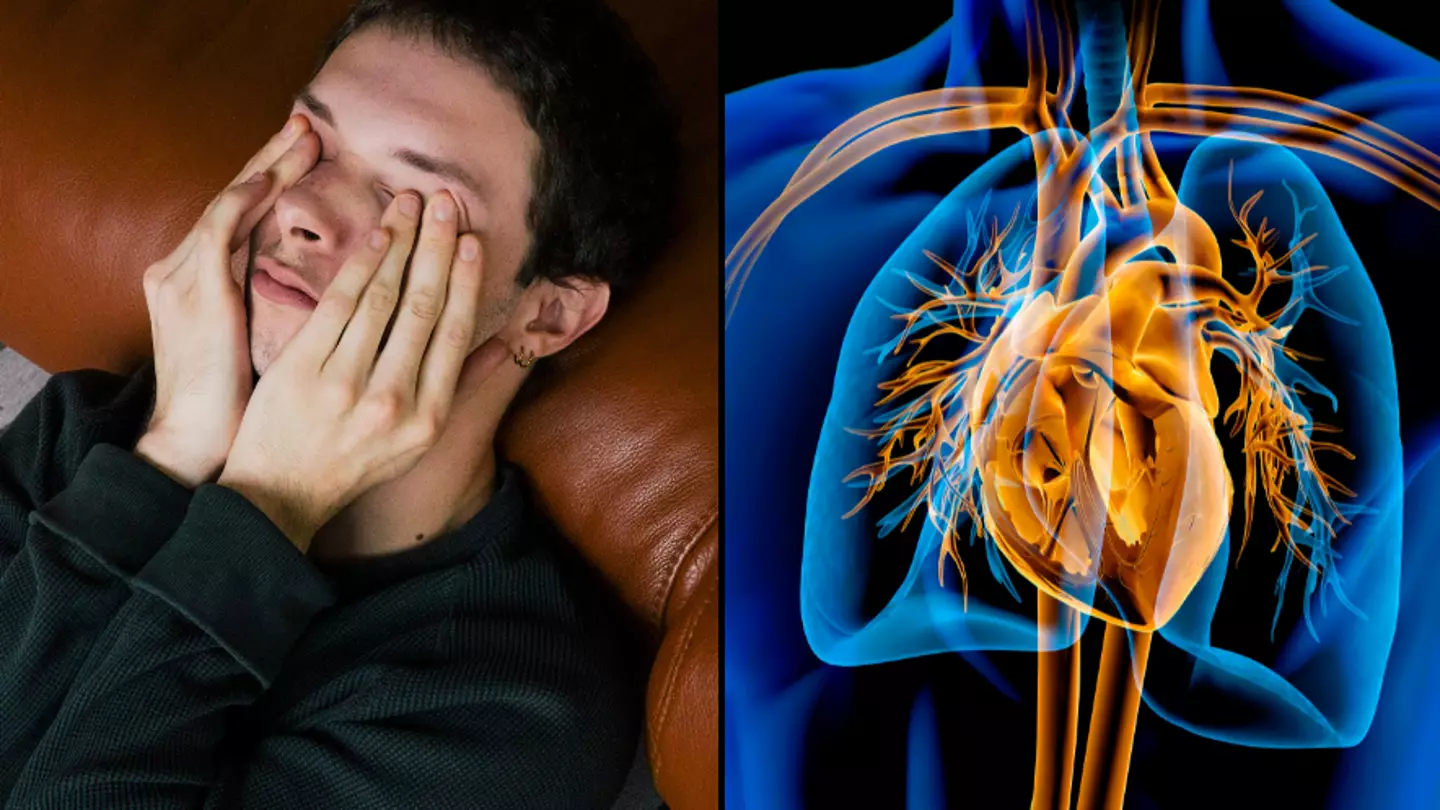Dr James Wetherby explained that this symptom is part of a wider diagnosis
Feeling tired once in a while is normal, especially if you’ve been under stress, had sleepless nights, or recently fought off an illness. But if you find yourself constantly battling fatigue without a clear reason, it might be time to dig deeper. According to cardiologist Dr. James Wetherby, chronic fatigue could be an early sign of a dangerous and often overlooked condition: heart failure.

How Heart Failure Affects Your Body and Why Fatigue Is a Warning Sign
Heart failure happens when the heart becomes too weak or stiff to pump blood effectively around the body. This lack of blood flow affects the delivery of oxygen and nutrients to muscles and tissues, leaving you feeling drained. “One of the earliest and most overlooked symptoms of heart failure is persistent fatigue,” Dr. Wetherby explained. “When your heart is under strain, it struggles to deliver oxygen-rich blood to the muscles and tissues, leaving you feeling utterly drained.”

Recent statistics highlight the prevalence of this condition, with approximately 900,000 people in the UK affected. Unfortunately, heart failure is often diagnosed late, increasing the risk of lasting damage. The British Heart Foundation reports that 40% of heart failure cases are diagnosed after the condition has already advanced, partly because early signs like fatigue are frequently dismissed.
Recognizing the Symptoms of Heart Failure
Fatigue is just one symptom of heart failure. Other signs to watch for include:
- Shortness of breath during physical activity or while resting.
- Swollen legs, ankles, or feet.
- Unexplained weight gain.
- Persistent cough or wheezing.
- Dizziness or confusion.
- A bloated stomach and loss of appetite.
- A fast heart rate or noticeable palpitations.
According to the NHS, these symptoms can develop gradually over weeks or months (chronic heart failure) or appear suddenly (acute heart failure). Because symptoms vary from person to person, it’s essential to seek medical attention if you experience any combination of these issues, especially persistent fatigue.
Why Early Diagnosis Is Crucial
The key to managing heart failure effectively lies in early detection. The longer the condition remains undiagnosed, the higher the risk of permanent damage to your heart and other organs. Dr. Wetherby emphasizes that seeking medical advice as soon as you notice unusual tiredness or other symptoms can make all the difference. The NHS adds, “Symptoms of heart failure can vary significantly and may start suddenly or worsen over time. Don’t wait to get checked out.”
How to Lower Your Risk of Heart Failure
Although heart failure is a serious condition, there are steps you can take to reduce your risk and manage symptoms if diagnosed. Lifestyle changes play a vital role, and the NHS recommends:
- Eating a balanced diet: Focus on meals rich in fruits, vegetables, whole grains, lean proteins, and low in saturated fats, salt, and sugar.
- Exercising regularly: Even moderate physical activity can strengthen your heart and improve overall health.
- Quitting smoking: Smoking damages blood vessels and increases the risk of heart-related issues.
.jpg)
In addition to lifestyle changes, medical interventions like medications, implanted devices, or even surgery (such as a bypass or transplant) may help manage the condition.
Take Persistent Fatigue Seriously
Feeling tired all the time may seem like a minor inconvenience, but it could be your body’s way of signaling a more serious problem. By recognizing the warning signs and seeking early medical intervention, you can address potential issues before they become life-threatening. Don’t ignore persistent fatigue—your health depends on it.

